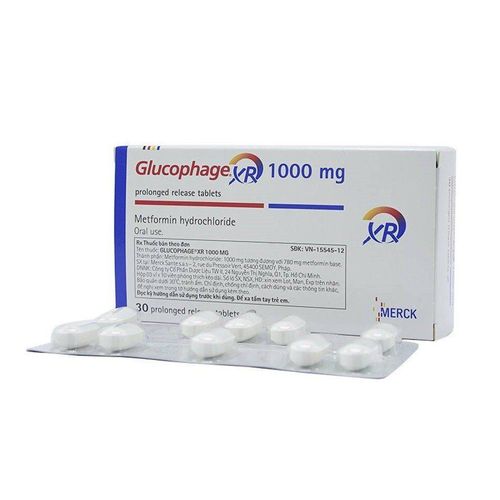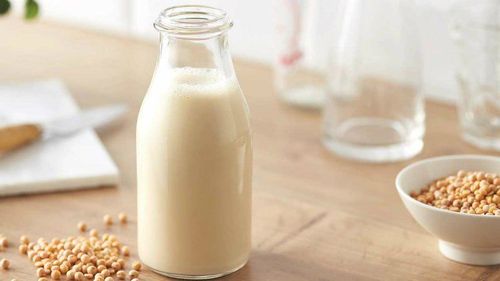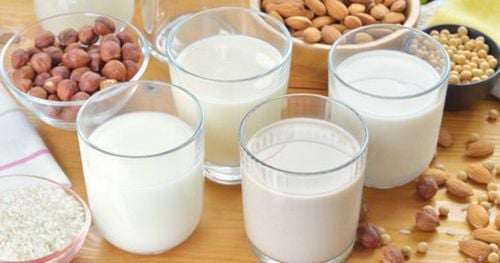This is an automatically translated article.
Regular soy consumption is considered one of the most controversial nutritional topics today. In fact, soybeans are rich in nutrients and may offer remarkable health benefits such as lower blood sugar, improved heart health, and reduced menopausal symptoms and cancer risks. However, there are also some concerns about the health effects of a soy-rich diet, such as decreased thyroid function, increased risk of breast cancer or feminizing effects in men. .
1. The nutrients in soybeans
Natural soybeans are usually very rich in protein and contain most of the essential amino acids that the body needs. What's more, they're also high in vegetable fats, fiber, several vitamins, minerals, and other beneficial plant compounds.
In addition to its rich vitamin and mineral content, daily consumption of soybeans can help you get large amounts of polyphenols, an antioxidant that protects the body from cell damage and chronic conditions such as heart disease. Soybeans are especially high in isoflavones, known as phytoestrogens - a subclass of polyphenols, which have the ability to bind to and activate estrogen receptors in the body. According to nutritionists, isoflavones in soy can bring many health benefits to consumers. Eating boiled soybeans can provide you with 90-134 mg of isoflavones per 100 grams of soybeans.
2. Is it good to eat a lot of soybeans?
Many people wonder whether eating a lot of soybeans is good? In fact, soybeans contain a lot of valuable nutrients for the human body. Not only is it rich in fiber, protein, omega-3 fatty acids, and antioxidants, but it's also low in saturated fat. Because of this, a regular soy diet can offer you many potential health benefits.2.1. Helps reduce cholesterol levels
Some studies show that eating soy daily or following a diet rich in soy foods can significantly reduce bad LDL cholesterol levels and increase good HDl cholesterol in the body. For example, when you consume an average of about 23 grams of soy protein per day, you can reduce total cholesterol and bad cholesterol by about 3%. In addition, eating soy regularly also helps increase good cholesterol (HDL) levels by 3% and reduce triglyceride levels by about 4%.
So is it good for people with heart disease to eat a lot of soy? According to nutritionists, people with existing risk factors for heart disease, such as obesity, high cholesterol or type 2 diabetes may benefit most from a healthy diet. soy-rich diet. In addition, soy foods such as tofu, tempeh or edamane may also improve cholesterol levels more than processed or fortified soy products.
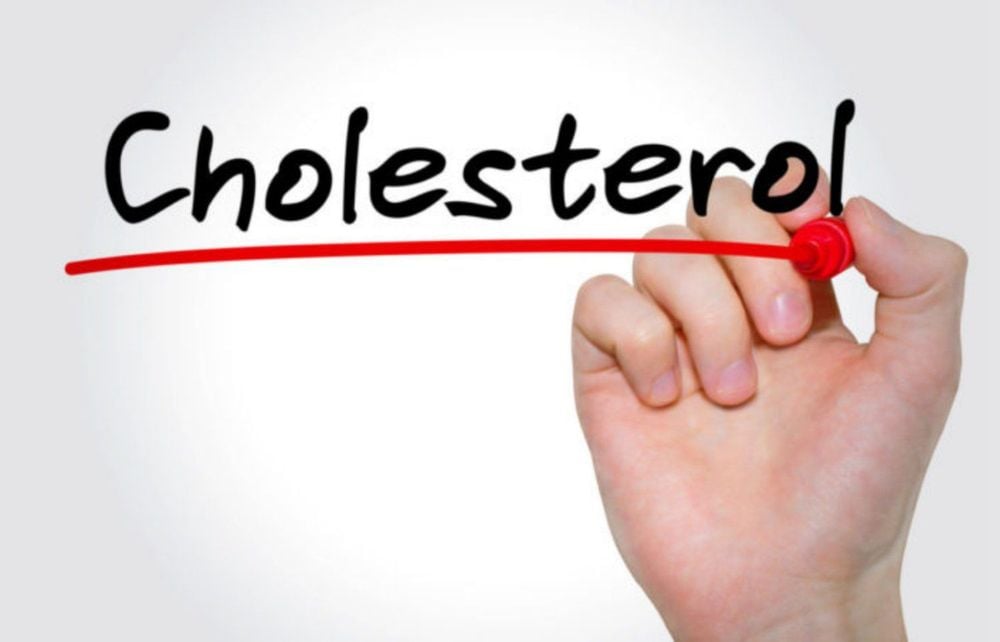
Ăn nhiều đậu nành giúp tăng mức Cholesterol tốt và giảm mức chất béo trung tính
A recent review found that daily soy consumption can reduce the risk of stroke by 20% and the risk of heart disease by 16%. In addition, eating soy regularly also reduces the risk of dying from heart disease by 15%.
2.3. Reducing high blood pressure Is it good for people with high blood pressure to eat a lot of soy? In fact, soybeans and foods made from them contain a lot of arginine, an amino acid that helps regulate blood pressure levels. What's more, soybeans are also considered an excellent source of isoflavones, a compound that also has the ability to lower blood pressure.
A new study has found that eating about 43 grams of soybeans per day can reduce diastolic blood pressure levels by 8% in some people. On the other hand, consuming about 65-153 mg of soy isoflavones per day can reduce blood pressure by 3-6 mmHg in people with high blood pressure.
2.4. Helps Lower Blood Sugar When eating soy regularly can help slightly lower blood sugar and insulin levels in postmenopausal women. The isoflavones in soy are also capable of reducing insulin resistance. Over time, insulin resistance can cause blood sugar levels to rise and lead to type 2 diabetes.
There is also evidence that soy protein supplements can slightly reduce blood sugar and insulin levels in people with diabetes. patients with metabolic syndrome or type 2 diabetes. Metabolic syndrome typically includes a group of conditions such as high blood sugar, blood pressure, cholesterol levels, and belly fat, which tend to increase the risk of the disease. heart disease, type 2 diabetes or stroke.
However, some studies have not found a glycemic control benefit of daily soy intake in healthy individuals. Therefore, we need more evaluation to be able to draw firm conclusions about the glycemic control effect of soy.
2.5. Improve fertility Some recent studies show that women who eat soy regularly can improve their fertility. Furthermore, consumption of foods made with soy may help protect against the negative effects of bisphenol A (BPA), a compound found in some plastics, which may reduce the reproductive.
However, some trials have shown that consuming 100 mg of soy isoflavones per day can reduce ovarian function and reproductive hormone levels. Women who consumed more than 40 mg of soy isoflavones per day were 13% more likely to experience fertility problems than those who consumed less than 10 mg per day. These trial results have been reconfirmed and show that ingesting 10 to 50 mg of soy isoflavones per day is unlikely to have any harmful effects on a woman's ovulation or fertility. .
2.6. Helps Relieve Menopause Symptoms Soybeans are rich in isoflavones, a group of compounds known as phytoestrogens or phytoestrogens, due to their ability to bind to estrogen receptors in the body.
During menopause, a woman's estrogen levels drop naturally, which can lead to unpleasant symptoms like vaginal dryness, fatigue, and hot flashes. By binding to estrogen receptors in the body, isoflavones in soy have the potential to relatively reduce the severity of menopausal symptoms.
In addition, daily consumption of soybeans also helps to reduce fatigue, depression, joint pain, irritability, anxiety and vaginal dryness commonly experienced during menopause or later in women. .
2.7. Improves bone health Low estrogen levels during menopause can cause bone calcium to drop significantly. This can cause bone loss and make postmenopausal women more susceptible to weak and brittle bones, also known as osteoporosis.
Nutritionists recommend that menopausal women eat soy regularly or consume about 40-110 mg of soy isoflavones per day to help reduce bone loss as well as improve bone health problems. .
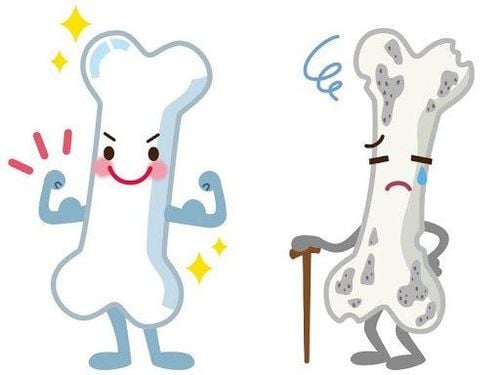
Ăn nhiều đậu nành giúp cải thiện các vấn đề về sức khỏe của xương
For men, eating a diet rich in soy may reduce the risk of prostate cancer, stomach cancer, lung cancer, and colon cancer.
3. Health concerns about soy consumption
Soybeans, like other foods derived from soybeans, have long been a part of the human diet. However, some people are concerned about the effects of regular soy consumption on various health aspects, including:Isoflavones in soy "mimic" estrogen in the body: Although isoflavones have It is structurally similar to the female reproductive hormone estrogen, but isoflavones have a weaker effect and also have some differences from estrogen. Cancer risk: Some people believe that consuming soy isoflavones may increase the risk of endometrial or breast cancer. However, most studies have not found this negative risk from eating soy. In some cases, they may even offer some protection against many types of cancer. Effects on thyroid function: Several test-tube and animal studies have shown that soy contains certain compounds that may decrease thyroid function. However, human studies do not seem to find any negative effects of soy consumption on the thyroid gland, especially in people with healthy thyroid function. Feminizing effects in men: Some people are concerned that the isoflavones in soy might decrease production of the male hormone testosterone. However, human studies have shown little link between the two. Danger to babies: Some people think that soy formula can adversely affect the development of the baby's brain, immune system and thyroid gland. However, many recent studies have not found any negative long-term effects of using soy formula for healthy and well-balanced infants. Genetically Modified Soybeans (GMOs): Some types of soybeans are genetically modified today, which may contain fewer nutrients and accumulate more herbicides than organic or conventional soybeans. often. Antinutrients: Soybeans contain a number of compounds, which can reduce the body's ability to absorb vitamins and minerals. Ways to help reduce the levels of resistant nutrients in soybeans can include soaking, fermenting, sprouting, or cooking. Digestive problems: Some animal studies suggest that the antinutrients in soy may decrease intestinal barrier functions, increasing the risk of inflammation and other digestive problems. In fact, the above concerns about eating soy for health all have very little sound scientific evidence. Furthermore, negative effects can sometimes occur when you consume large amounts of soy. Some men reported experiencing a feminization effect when they consumed more than nine times the amount of soy the average person eats. However, it seems that very few people can eat soy continuously every day, so the risk of soy feminization is very rare.
Please dial HOTLINE for more information or register for an appointment HERE. Download MyVinmec app to make appointments faster and to manage your bookings easily.
References: healthline.com, betterhealth.vic.gov.au, hsph.harvard.edu





